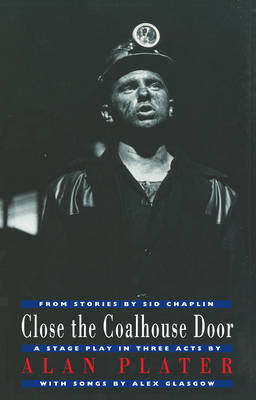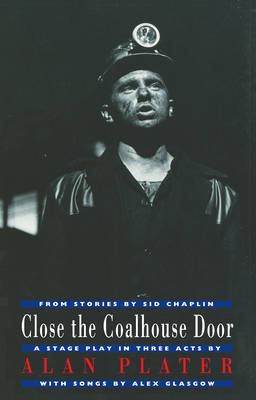
- Afhalen na 1 uur in een winkel met voorraad
- Gratis thuislevering in België vanaf € 30
- Ruim aanbod met 7 miljoen producten
- Afhalen na 1 uur in een winkel met voorraad
- Gratis thuislevering in België vanaf € 30
- Ruim aanbod met 7 miljoen producten
Zoeken
€ 13,95
+ 27 punten
Omschrijving
Close the Coalhouse Door is a living pageant of the North-East's mining communities, and also a key work in the development of British political drama. Triumphantly revived by Live Theatre, this gritty musical is regularly staged by all kinds of theatre companies, from professional to school and amateur. The original version was published by Samuel French. This new edition, using the updated script, was published in response to demand from the numerous theatre groups which want to perform it. Alan Plater wrote: 'Some plays refuse to lie down. Others surrender on the first night and disappear into a mysterious other country - the land of lost plays. Nobody can explain this phenomenon. Shakespeare himself had no idea how many people would turn up on the night. Close the Coalhouse Door was written, with the wise and loving inspiration of Sid Chaplin and adorned by the songs of Alex Glasgow, in 1968. It has been revived at regular intervals ever since. Initially we updated it, to accommodate Edward Heath and the miners' strikes; but eventually time took its revenges. In 1968 we had a cast of ten plus walk-ons, five musicians and a full brass band on special occasions. The new version is written for a cast of eight, who made their own music, again with a brass band on special occasions. Theatrical resources have shrunk, though not as drastically as the coal industry. The soul of the piece is unchanging. We originally described it as "a hymn of unqualified praise to the miners - who created a revolutionary weapon without having a revolutionary intent". If, today, the hymn is more in the nature of an elegy, it is a strain that haunts the dreams of everyone with roots in the North-East.'
Specificaties
Betrokkenen
- Auteur(s):
- Uitgeverij:
Inhoud
- Aantal bladzijden:
- 104
- Taal:
- Engels
- Reeks:
Eigenschappen
- Productcode (EAN):
- 9781852244897
- Verschijningsdatum:
- 27/06/2000
- Uitvoering:
- Paperback
- Formaat:
- Trade paperback (VS)
- Afmetingen:
- 137 mm x 213 mm
- Gewicht:
- 158 g

Alleen bij Standaard Boekhandel
+ 27 punten op je klantenkaart van Standaard Boekhandel
Beoordelingen
We publiceren alleen reviews die voldoen aan de voorwaarden voor reviews. Bekijk onze voorwaarden voor reviews.











